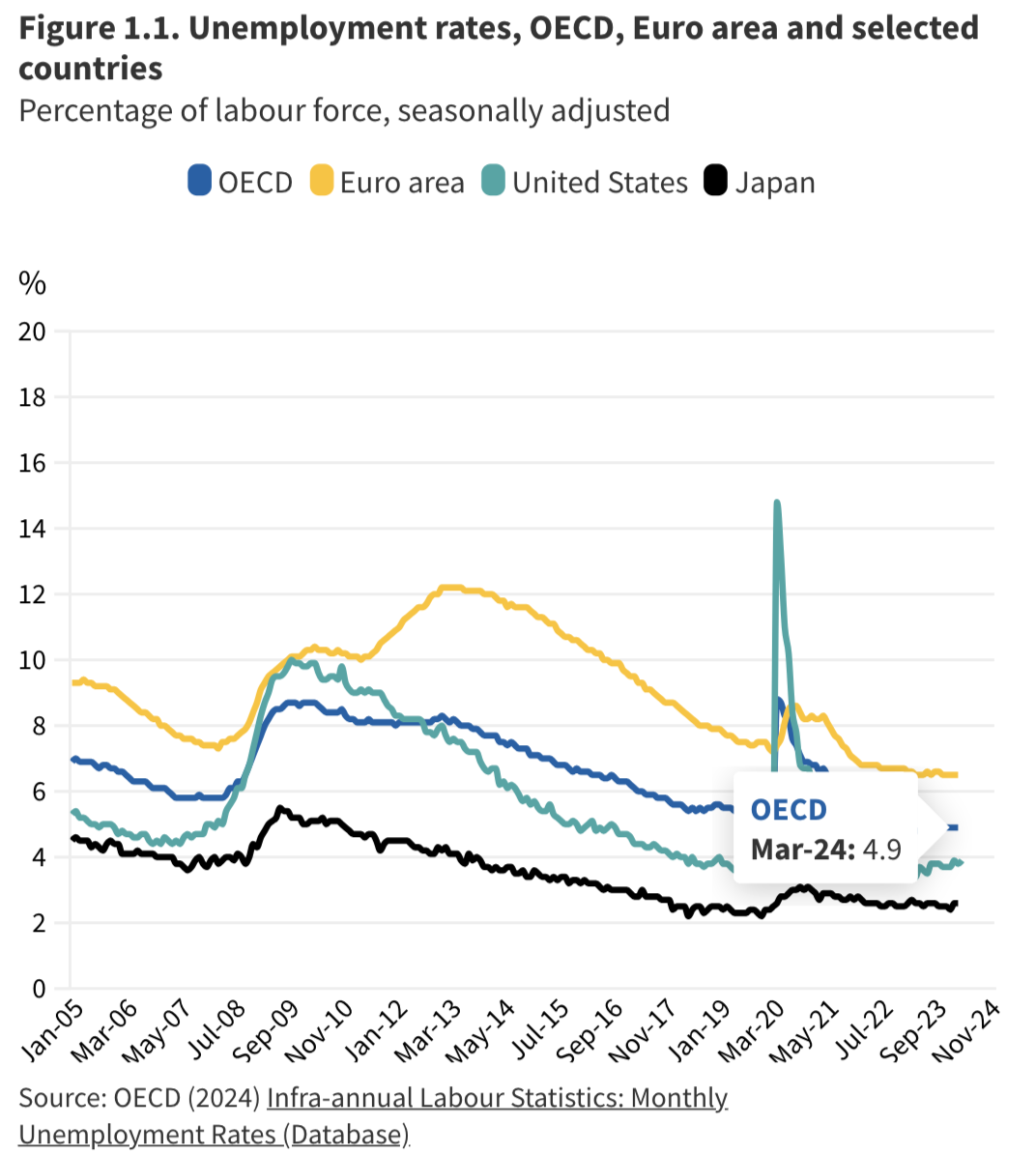
But higher unemployment recorded for women in OECD countries

The unemployment rate for countries in the Organisation for Economic Co-operation and Development (OECD) remained at 4.9% in March 2024.
But the number of unemployed people increased to 34.2 million in March, up from the 33.9 million in February, according to the OECD.
The organisation attributed the increase to the higher number of unemployed women during the period, which logged a 0.7 percentage points increase to 5.3% for the month of March.

By country, the following OECD nations recorded a rate below or equal to five per cent:
The rate was unchanged in 22 OECD countries, while it rose in eight nations and declined in two, according to the OECD.
Meanwhile, the OECD said unemployment rate for women went up to 5.3% in March, higher than the "broadly stable" rate for men.
"The unemployment rate for women exceeded that of men in the European Union, the euro area, and 20 OECD countries in March 2024 (or in the latest period available) with the largest gaps observed in Colombia, Greece, and Türkiye," the OECD said in a media release.
The unemployment rate in the European Union remained at a record low of six per cent. The euro area was also at a record low of 6.5%.
The findings come amid forecasts from the International Labour Organisation that the global unemployment rate could go up in 2024 to reach 5.1%.